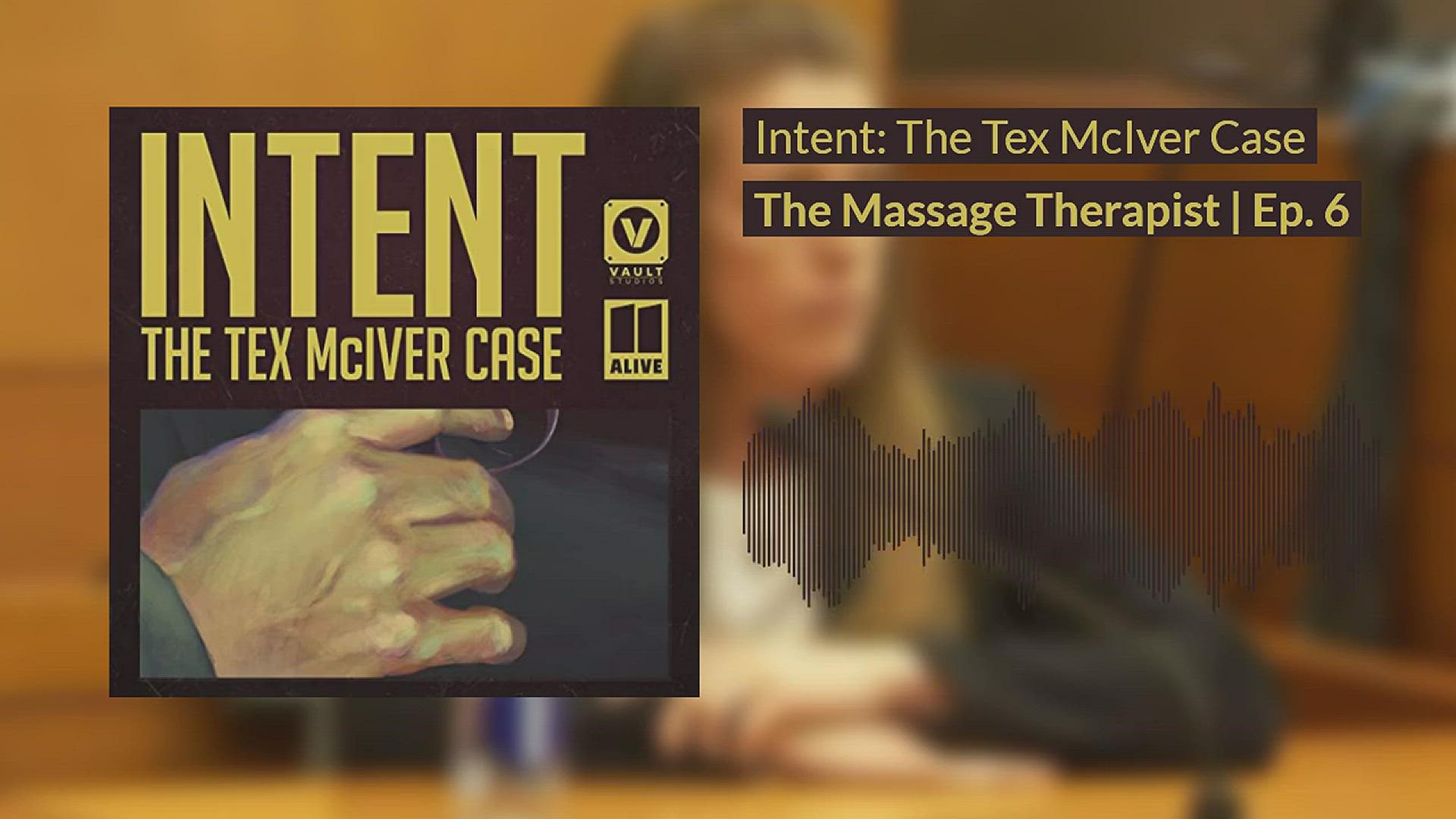ATLANTA — By the end of March 2018, there had been about two weeks of testimony in the Tex McIver murder trial: doctors, nurses, friends, detectives…and of course Dani Jo Carter, the woman driving the McIvers’ SUV the night Diane McIver was shot and killed.
On day 13 of the trial, the prosecution shifted its focus to guns. Tex’s .38 caliber revolver specifically.
Zachary Weitzel, a firearms investigator with the Georgia Bureau of Investigation, testified for the prosecution about the gun that was in Tex’s hand the night of the shooting.
The firearms investigator demonstrated what it would take to fire the revolver in single-action mode, as well as double-action mode on Tex's gun.
He's also asked what it would take for the gun to fire accidentally.
The following day, Detective Darren Smith with the Atlanta police homicide unit took the stand, as prosecutors leaned into what investigators failed to ask following the shooting.
The Tex McIver trial resumed one week later on April 9, 2018, the 15th day of testimony.
Among those who took the stand on that first day back was Dr. Marty Sellers, one of the surgeons who fought to save Diane McIver the night she arrived at Emory University hospital. There, he told the jury about Diane’s fatal injury and how surgeons tried for more than two hours to keep her alive.
But it’s what happened after she died - when Dr. Sellers went to find Tex McIver and tell him the news - that the prosecution was eager to highlight.
Then, after 16 days and testimony from dozens of witnesses, the prosecution rested its case.
The defense was poised to begin calling witnesses to the stand, but not before Judge Robert McBurney made a ruling on two of the seven charges against Tex.
McBurney claimed the state didn’t prove McIver tampered with witnesses when he contacted Bill Crane about his Black Lives Matter statement, nor when he called and left a voicemail for Dani Jo Carter’s husband about the Carter’s hiring lawyers and how that might look bad for Tex.
The move marked a small victory for the defense, but Tex was still left facing five other charges, including one remaining count of witness tampering, and, of course, malice murder.
On the first day of testimony from defense witnesses, Dr. David Rye, a Professor of Neurology at Emory University, was called to the stand to explain how Tex could have fired the gun unknowingly.
Among the suggestions was REM sleep behavior disorder - or RBD - which was already brought up by a prosecution expert who discounted the theory that it could have played into events that night.
Yet, the defense expert believed otherwise, stating that RBD can cause someone to flail their arms and legs while sleeping, movements that can be jerky and sporadic.
The expert then said someone with RBD - like Tex - could suffer from "confusional arousals," adding when they wake up, they could be disoriented and unaware of what they’ve done.
As the defense continued to call on witnesses, those in the courtroom were left wondering if Tex’s masseuse, Annie Anderson, would ever be called to the stand. The woman was allegedly seen wearing a pair of Diane’s boots not long after her death.
Then, on day 18, the defense called her to the stand.
Anderson first testified that she got to know the McIvers 13 years prior, before the defense shifted to asking her specifically about her relationship with Tex.
She added that after Diane’s death, she kept a close eye on Tex, knowing he was in a fragile state.
In his cross-examination, Clint Rucker with the prosecution asked her about going with Tex to the ranch that week after Diane’s death, as well as the rubber boots the prosecution witness testified he’d seen her wearing at one point.
Anderson claimed she never wore the boots, testifying that Diane’s foot size was 7.5 and hers is much larger.
Day 19 of testimony would feature a tension-filled cross-examined by the prosecution of the final defense witness, a crime scene expert, along with - for the first time in the trial - Tex himself speaking in the courtroom.
====
A week later, the prosecution brought forward a rebuttal witness to address the defense's claim that Tex has a sleep disorder- arguing that's how he might have fired the gun the night of Diane’s death.
Dr. Mark Pressman, a trained sleep researcher with 40 years of experience in the field of sleep disorders, testified that he’d reviewed years of tests and test results indicating that Tex McIver might have a sleep disorder.
But when asked if anything in particular struck him about Tex’s interview with police following Diane’s death, he stated if Tex felt fear as they drove through the streets of Atlanta, then, it wouldn’t make sense for him to be able to fall into any kind of sleep state such a short time later, only to be jarred awake.
Pressman then testified that the timing meant it would have been unlikely that a sleep disorder, or something like confusional arousal, could have played into what happened that night.
As he answered the prosecution’s questions, he clearly stated he believed Tex McIver was awake when the gun went off.
But before Pressman left the stand, he was asked one final question by Judge McBurney as clarification for the jury: why Pressman believes Tex wasn’t asleep, or startled awake?
“Explain…within moments.”
Following that testimony, jurors were taken on a field trip after asking for a close-up look at the McIver’s SUV.
Cameras weren't allowed, but 11Alive was able to join the tour.
As the final day of testimony drew to a close, closing arguments loomed, scheduled to begin the next morning
New episodes of "Intent: The Tex McIver Case" drop every Monday starting August 22. Listen on your favorite podcast apps including Apple Podcasts, Spotify, Amazon Music and Stitcher.

